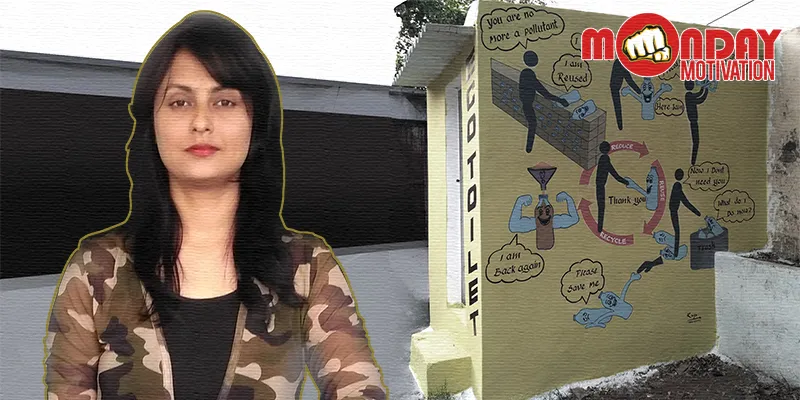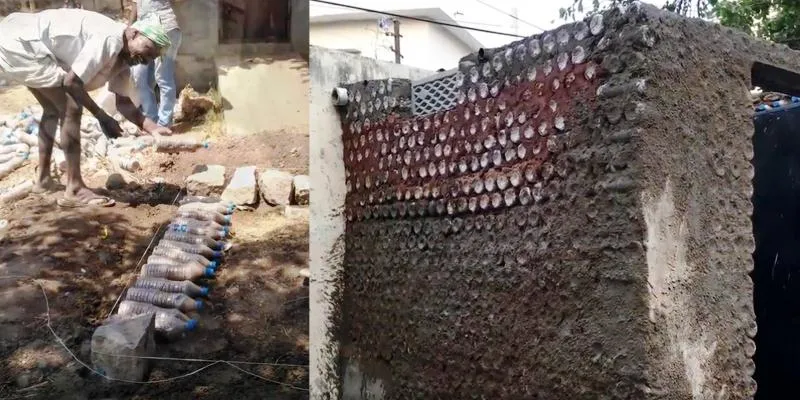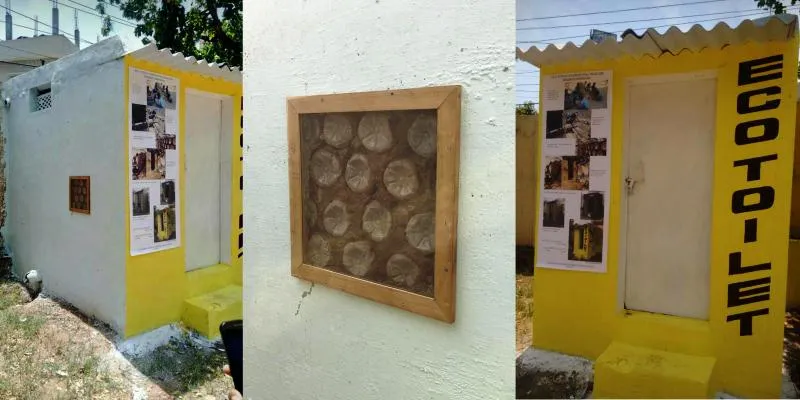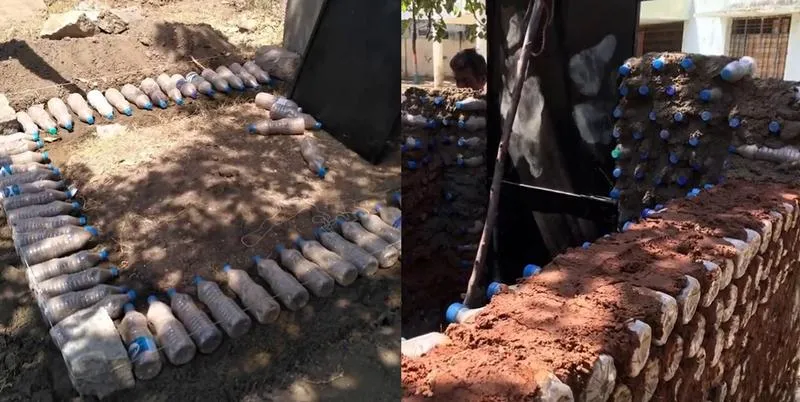This architect is building eco-friendly toilets using old plastic bottles
Due to a rapid increase in the number of pollutants in the environment, a green future seems distant, but people like Rashmii Tiwaari give us cause to believe all is not lost.

At the beginning of 2017, Rashmii Tiwaari, originally from UP and settled in Hyderabad, was wondering how she would go about her M.Arch in Environmental Design thesis. After brainstorming for some days, she came up with the ingenious idea of using plastic bottles to build toilets.
She completed her small-scale model and topped her college, only then realising that her project had the potential to solve a lingering problem in India.
Inspired by the Swachh Bharat Abhiyan and its focus on eliminating open defaecation, Rashmii decided to build toilets for Dr. Ambedkar Government School. With the principal’s support and funds from her own pocket (about Rs 18,000) Rashmii embarked on her mission this March.
Looking back, Rashmii says she has come a long way.
“My parents wanted me to be a doctor or an engineer. But I was interested in sketching and painting. I wanted to do something creative along those lines. So I decided to do an architecture course.”

About eco-toilets
“I used cement and sand for plastering; that's how I could cut down the construction costs further by 30 percent. I used 1,200 one-litre PET bottles in place of conventional bricks. For the mortar, inside the bottles, I used mud, cow dung, and cow urine,” she says.
After two months of thorough testing, when it was clear that it could withstand various weather conditions, the eco-toilet was inaugurated on May 21. It proved not just eco-friendly but cost-effective too.
According to Rashmii, using the bottles in any other way, even recycling, will only cause more damage.
“Recycling will also harm the environment. The fumes and gases released during recycling are toxic. I pondered upon how to use old plastic bottles in the most eco-friendly, effective way. I stumbled upon the idea that the best way was through construction. We aren't able to stop the production of plastic bottles but we can at least use them in a better way by building a house or building toilets.”

The main reason for this initiative
According to a study, globally, humans buy a million plastic bottles per minute. Out of all the plastic consumed, 91 percent of plastic is not recycled and the rest land into landfills or dumped in oceans endangering animals, human beings on this planet.
Concerned by the increase of plastic bottles, she decided to use it as the key material in her project.
“I chose toilets as there is an acute scarcity of toilets, especially in villages, government schools, and slums. It is observed that female students, particularly, are facing difficulty in schools. I learnt that in many parts of our country people defecate in the open, while women wait for sunset to do so. Often, their modesty and lives are at risk,” explains Rashmii.

Challenges and recognition
It wasn’t all that easy to complete this project. According to Rashmii, it was difficult to procure the bottles required.
“People started charging me more for bottles since they realised I was in need of them,” Rashmii says.
In addition, Rashmii had to face another challenge. The plastic bottles had to be carefully placed in mud to ensure that the walls were built well.
“I couldn’t just leave it to the masons; I had to be there to place and tie the bottles,” she says.
Upon the successful completion of the eco-toilets, Rashmii was recognised for her clever idea and inspiring work. She was congratulated by Harichandana Dasari, who was the zonal commissioner of the central zone, GHMC (The Greater Hyderabad Municipal Corporation) at that time. She was requested to build 60–80 toilets in one zone under the Swachh Bharat Abhiyan. Apart from that, she saw her project being featured in leading newspapers and television channels and many NGOs approached her to build more toilets.
Future plans
By the end of 2017, Rashmii plans to start her own NGO called ‘NAMAHA’, through which she hopes to acquire the resources and funds required for further projects. Through her NGO, she plans on building more toilets using PET bottles to reach out to underprivileged people in rural area.
Enter the SocialStory Photography contest and show us how people are changing the world! Win prize money worth Rs 1 lakh and more. Click here for details!







